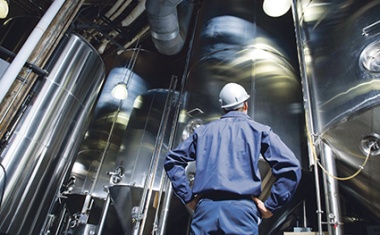
Powering Progress: An AI-ready Data Strategy to Drive More Efficient Innovation
Build an AI-ready Data Strategy to Drive Faster Insights, Smarter R&D, and Measurable ROI.

Build an AI-ready Data Strategy to Drive Faster Insights, Smarter R&D, and Measurable ROI.

John Banovetz, Chief Technology Officer at 3M, on the role of digital transformation in realizing the company's goals.

Generative AI can impact the field of chromatography in various innovative ways. However, great care needs to be taken to validate any use of this emerging technology from a technical, quality and regulatory perspective.

The logistics industry urgently needs digital transformation to ensure quality and to tackle challenges such as the shortage of skilled workers and sustainability.

Process manufacturing companies waste almost $100 billion globally every year while formulating novel materials and chemicals due to the trial-and-error approach to R&D and the lack of tools to leverage the experimental data in real-time.

Manual experiment monitoring and data capture is still the status quo in most biotech and pharma labs, compromising efficiency and project timescales. But there is a better way.

The Spanish computational chemistry start-up Nextmol (Bytelab Solutions), a spin-off from the Barcelona Supercomputing Centre, offers a software-as-a-service (SaaS) platform that accelerates research and innovation in sustainable specialty chemicals through “in silico” experiments using molecular modeling and artificial intelligence (AI).

As it continues to leverage earnings from its top-selling mRNA-based Covid vaccine to deepen its existing knowhow, Mainz, Germany-based BioNtech has announced plans to acquire all of London-based artificial intelligence specialist InstaDeep.

By fully realizing the potential of data-driven analysis and machine learning, chemical producers can maximize plant uptime and optimize process efficiency.




